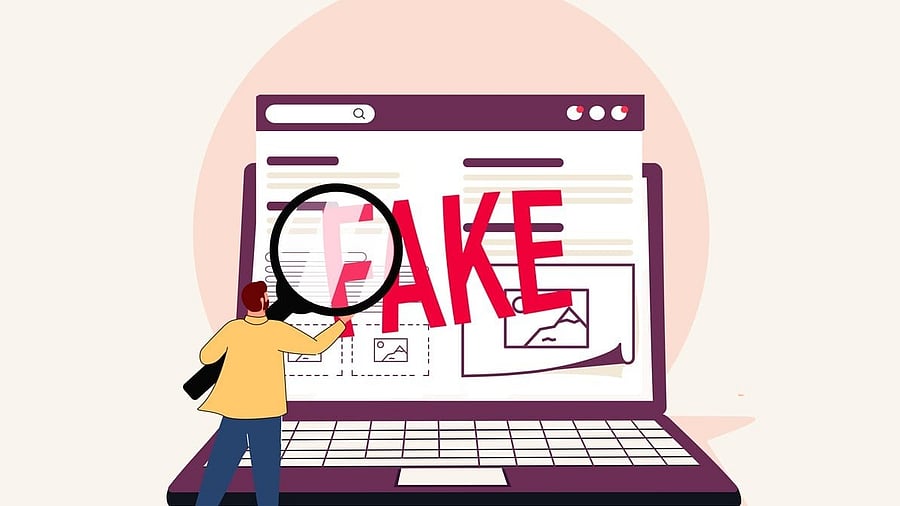
Fake news representative image.
Credit: iStock Photo
New Delhi: Calling it a “vicious cycle” that leads to “virality of fake news”, the Ministry of Information and Broadcasting has said that revenue model of digital news publishers depends on social media intermediaries like YouTube, Facebook and Instagram where “sensational and potentially fake content” gets “more traction” with its algorithms amplifying it.
Sources said the Ministry has made these assertions in a written response to the Parliamentary Standing Committee on Communications and Information Technology headed by BJP MP Nishikant Dubey, in which it also amplified the need for defining fake news and incorporating it in the existing media regulatory mechanisms to effectively fight misinformation.
The multi-party panel, which is examining the ‘Review of Mechanism to Curb Fake News’, will meet on Wednesday to review the responses by the Ministry and stakeholders like Editors Guild of India (EGI) and News Broadcasters and Digital Association (NBDA), which has made their views on around 60 questions posed to them.
The Ministry said freedom of speech is used for “uncontrolled expression on social media”, which “leads to vulgar content” on OTT platforms and fake news in social media, and there is a need to make the existing laws more stringent. For this, it said, there is a need for building a consensus.
The NBDA in its written response said any attempt to enact additional regulations or legislations to curb fake news may impinge the rights of the media under Article 19(1)(a), as there are sufficient legislations and regulations and Code of Conduct to address concerns.
The EGI acknowledged the challenges posed by fake news but said any regulatory framework must preserve constitutional guarantees of free speech and editorial independence, as it advocated “self-regulation, transparency and collaboration” among stakeholders as the “most effective strategies” to tackle misinformation.
Responding to a query on what could be done to make social media and YouTube channels more accountable against running fake content, sources said the Ministry referred to the revenue model of digital news publishers, which are on social media platforms and depend on “sensational and potentially fake content” that gets more traction.
The algorithms of platforms like YouTube, Facebook and Instagram further amplifies such content, it said.
The Ministry said the intermediary platforms enjoy immunity from the third-party liability of content posted on their platforms by users. It said due diligence for the intermediary platforms could be revisited, making them take appropriate steps to remove fake news from their platforms on their own.
This will take away the incentives for the publishers of fake news on such platforms, it said.
While emphasising that self-regulation is the best mode to fight fake news, the Ministry has highlighted that there is a need for defining fake news and incorporating it in the existing regulatory mechanisms to augment the effectiveness of the efforts to check the spread of fake news.
On the spread of fake news, it said social media platforms like Facebook, Twitter and Instagram amplify content that garners engagement and since "sensational or emotionally charged" content often generates more "clicks, likes and shares", these platforms' algorithms tend to prioritise such stories, which are sometimes fake or misleading.
It also said people's lack of skills to critically assess the information in digital space, distinguishing between reliable and unreliable sources and understanding how false information is crafted to appear credible also add to the trouble.
It also said the Ministry of Electronics and Information Technology is in the process of filing a Special Leave Petition against the judgement of Bombay High Court against PIB's Fact Check Unit.
